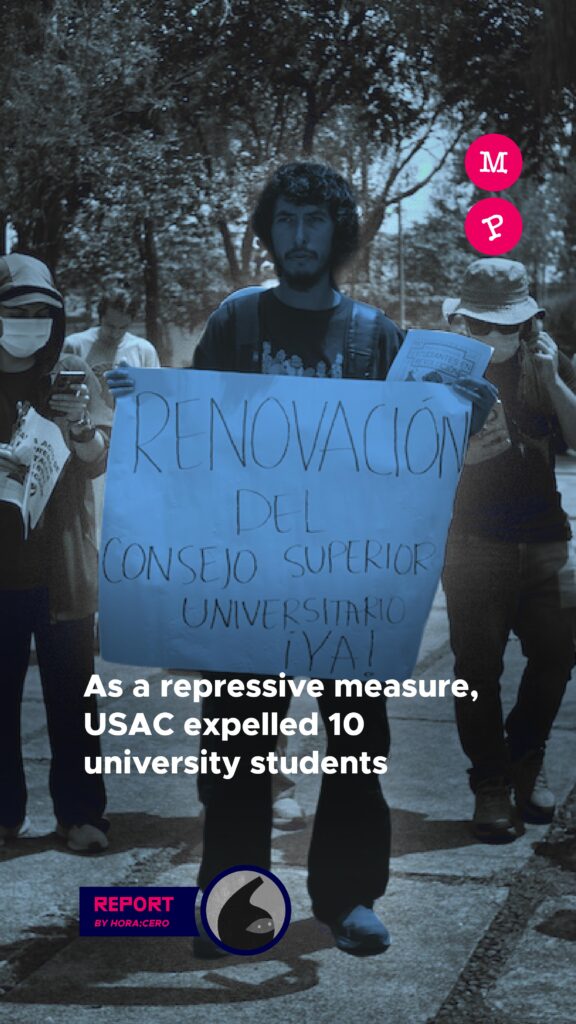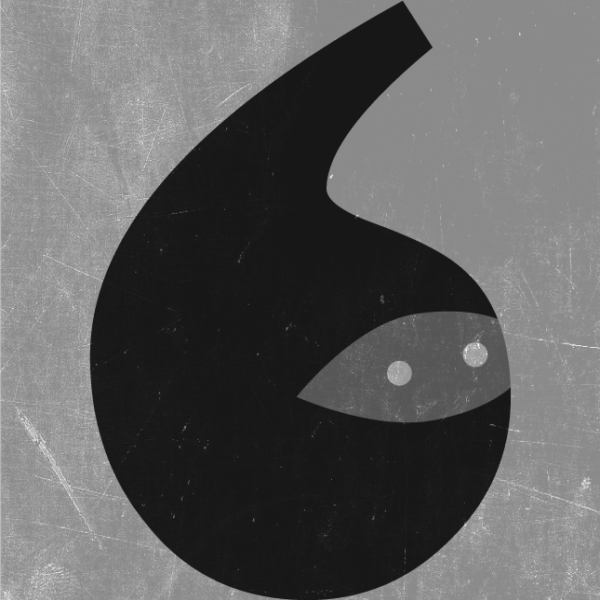
On May 29, 2025, the University Superior Council (CSU) of the University of San Carlos of Guatemala (USAC) expelled ten students as a repressive measure for their participation in protests against the election of Walter Mazariegos as rector, a process considered fraudulent. The expulsions come amid a context of political and academic tensions, and are part of a series of decisions that have been widely criticized by the academic and social sectors.
The CSU, which has been criticized for its illegitimate composition, with 37 of its 41 members serving outside their legal term, justified the expulsions as part of a disciplinary process that began in February 2024. This measure was criticized for its authoritarian nature, considering it an attempt to silence dissenting voices within the university. The expelled students include active members of the student movement, such as Evelyn Myte Recinos Donis of the Faculty of Chemical Sciences and Pharmacy, and several members of the Board of Trustees of the Faculty of Agriculture, among others.
The situation has escalated due to the CSU’s decision to initiate disciplinary proceedings against a total of 74 individuals, including students, faculty, and staff, without prior notice and with extremely short deadlines to present evidence. This action has been widely questioned by organizations defending student rights and university autonomy, who denounce the violations of due process and the lack of transparency in these proceedings.
Furthermore, the conflict has been exacerbated by growing distrust of the administration of Walter Mazariegos, whose election as rector has been accused of fraud and of excluding other candidates from the electoral process. Student protests have continued as a form of resistance to what is considered an act of usurpation of the rectorship, with slogans such as «Walter is not rector, he’s a drug-trafficking usurper» used during demonstrations in front of the Rector’s Office.
This context of repression has generated a strong response from social and academic organizations within Guatemala. Various voices have denounced the violence that occurred on the USAC main campus, especially during the May 30 protests in support of the expelled students. During these demonstrations, attacks were reported against legislators such as Brenda Mejía and Luis Ventura, who had expressed their support for the students’ demands, as well as against journalist Hamilton Chang, who was covering the events. The protesters were subjected to a police cordon that prevented their immediate departure, increasing tensions and rejection of university authorities.
The Assembly of Social Organizations of Guatemala condemned these actions, stating that the expulsions are a clear example of how the right to higher education is violated and freedom of expression is undermined within the university. For these organizations, the CSU’s decisions reflect the authoritarian nature of university authorities, who act with complete impunity to repress those who question their legitimacy and those who defend student rights.
This conflict highlights the growing polarization at USAC, one of the country’s most important universities, and highlights the challenges the institution faces in maintaining its autonomy and its role as a space for reflection and academic freedom. The student protests, far from abating, appear to be intensifying, while authorities continue their strategy of disciplining those who oppose their administration.

| Cookie | Duración | Descripción |
|---|---|---|
| cookielawinfo-checkbox-analytics | 11 months | This cookie is set by GDPR Cookie Consent plugin. The cookie is used to store the user consent for the cookies in the category "Analytics". |
| cookielawinfo-checkbox-functional | 11 months | The cookie is set by GDPR cookie consent to record the user consent for the cookies in the category "Functional". |
| cookielawinfo-checkbox-necessary | 11 months | This cookie is set by GDPR Cookie Consent plugin. The cookies is used to store the user consent for the cookies in the category "Necessary". |
| cookielawinfo-checkbox-others | 11 months | This cookie is set by GDPR Cookie Consent plugin. The cookie is used to store the user consent for the cookies in the category "Other. |
| cookielawinfo-checkbox-performance | 11 months | This cookie is set by GDPR Cookie Consent plugin. The cookie is used to store the user consent for the cookies in the category "Performance". |
| viewed_cookie_policy | 11 months | The cookie is set by the GDPR Cookie Consent plugin and is used to store whether or not user has consented to the use of cookies. It does not store any personal data. |